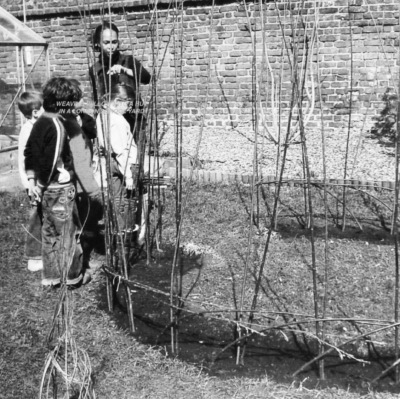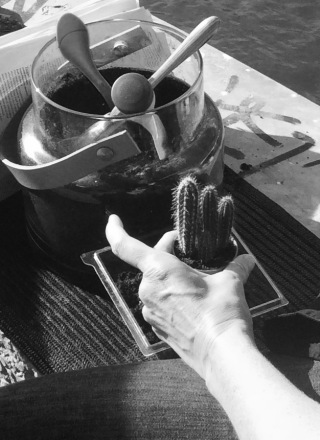“Living has has nothing to do with methods. We learn from the seagulls, or from little children, or from growing plants what living means.”
Charlotte Selver
A SENSORY JOURNEY BACKWARDS
You are uber booked.
Working, raising families, striving for that promotion, keeping abreast of current events like an informed citizen; hanging out on Facebook, Twitter and Pintrest while juggling the email inbox and text messages from colleagues and needy loved ones; continuing education for the job after hours because you are competing for a better position, doing school runs, and doctors runs, and dog runs, trying to get to the gym, organizing dinner parties for the in-laws, or play dates for the kids, reserving flight tickets and air BnB accommodations if you are so lucky to take breaks, because the daily commute to work is honestly travel enough; maybe you are hunting down a yoga class just to breathe or a DIY class where there is no back biting; trying to get yourself sorted after that last union strike made everything a whole lot more time consuming; oh and did I mention trying to keep up with all of the deep fried culture you can swallow so that you feel like you are still a part of the urban mill.
And then getting up to do it all again the next day.
 More work, more family, more episodes of your life.
More work, more family, more episodes of your life.
Trying not to crack at the seams.
We call it Metro-Boulot-Dodo (Train-Work-Sleep)
I get it.
But what touches us as human beings?
“We are awakening a little to the feeling that something is wrong in the world, that our modern prejudice of overestimating the importance of the intellect and the conscious mind might be false.” Jung is reported to have said in 1931. See C.G. Jung on Nature, Technology and Modern Life.
Separated as we are from ourselves, from others, from the earth, living mostly in metropolis or in suburbia, surrounded by finished goods, venturing outside of ourselves rarely or at planned episodic moments during holidays and breaks despite the persistent nagging feeling that things are not as they could be, that something is missing, that we are suffering from a deficiency writ large in the multiple crisis we see unfolding daily –environmental, gendered, political, social?
What touches us still?
For my part, after having had the extraordinary privilege of working with people with severe limitations, acquired or congenital, through trauma or medical insult, watching some learn how to bring a spoon to the mouth, full of wonder, attention, frustration…or put one foot in front of the other, magically, like a toddler, made something apparent about the proverbial sound of mind and body. Most of the time, when everything is as it should be, we are overwhelmed and running on automatic pilot. Taking everything for granted,
we are senseless and sense impoverished in our everyday abilities.
And mostly it begins with having forgotten marvellous little things.
But we have to open up spaces for a type of creative work of observing the little things. This requires elaborating our own stylistic and intimate spaces, where our own language of metaphors can grow. Especially if we get up close and personal with the little things, touching them, investigating them, testing them, exploring their qualities and investing them in new imaginative ways. In the process we may even become art makers, not just consumers of ready mades.
In my own journey from academic researcher to fiber arts maker, I ventured “out” of the archives, “into” the outdoors, touching rush and grasses and discovering the grace of the willow bough. This was all somehow intimately linked to encountering newborns and toddlers or children. Astonished by the feel of sand and grass under foot and in hand, frightened shrieking by the tiny flapping wings of ladybirds, delighted by mud larking, excited by the sound of shells and rocks in their pockets, they reminded me of how I once loved to perch in trees and make things with twigs and leaves.
Re-enchanted, I was reminded that attending to the infinitely small details, is enriching. And when these infinitely small details come to us through our complex natural environment, we stand to gain immensely. Almost as if paying attention to non human things and beings made us better, more interesting humans.
“We need to project ourselves into the things around us. My self is not confined to my body. It extends into all things….without these things I would not be myself; I would not be human.”
Carl Jung
Several strains of research and scholarship demonstrate that we experience an enhanced and heightened sense of well-being in such cases as those that provide an opportunity to engage with Nature. Although the construct of “Nature”, merits its own focus and is the subject of extensive, heated debate, I use it here as a shorthand to refer to the rocks, woods mountains, rivers and materials and beings thereby associated.
The Biophilia thesis of E.O. Wilson suggests that man has evolved with a preferential and essential rapport for other living species. Richard Louv warns that we are the Last children in the woods. Separated as we are from the world’s non human presences, living and inorganic, we suffer from a Nature deficit, which is not simply visual or cognitive but sensi-motor, that’s to say bodily and perceptual.
While Environmental and evolutionary psychologists such as the Kaplans’ invoke homo sapiens’ long intimate history on the savannah and the cognitive qualities of attention restoration, David Abrams writes about the Spell of the Sensuous. He too posits that our reconnection to the nonbuilt environment is primordial.
 Its almost as if, the journey of the soul-in the body-in the world, the ecological self, the web of interconnectedness, as Michel Cohen, might argue, is at stake just by virtue of our lack of an everyday fostering of Nature relatedness. And we find ourselves coming full circle to encounter Carl Jung and other philosophers, psychologists, deep ecologists having professed that Self is vaster, less id/ego/superego, and more systems dependent more inclusive, more transpersonal and post-human. These are some of the things I hope to explore on another virtual platform.
Its almost as if, the journey of the soul-in the body-in the world, the ecological self, the web of interconnectedness, as Michel Cohen, might argue, is at stake just by virtue of our lack of an everyday fostering of Nature relatedness. And we find ourselves coming full circle to encounter Carl Jung and other philosophers, psychologists, deep ecologists having professed that Self is vaster, less id/ego/superego, and more systems dependent more inclusive, more transpersonal and post-human. These are some of the things I hope to explore on another virtual platform.
Evidently, our evolution in the wilderness, our place in the landscape, our domestic gardens outside and indoors, the exotic exploits of plant hunters, the impassioned adventures of plantswomen, our economic botanical dependence, our aesthetic entanglement with plants and plant materials, testify to an ongoing mysterious need to keep growing living beings close. Especially should we wish to cultivate stewardship.
However, beyond the theoretical , historical and empirical exhibits of the people-plant link, there is also the poetic, thats to say labourious rapport. Meaningful human occupation or simple making, poesis, the intimate gestural choreography and sensory engagement that comes with feeling materials, is also our making. And the process of making -another form of playing as psychotherapists Donald Winicott, Didier Anzieu, JP Klein have noted- parallel our becoming.
We are the labourer of our souls through handicraft.
Several philosphers, archeologists and anthropologists underscore the importance of the hands in human development. From Andre-Georges Haudricourt to Tim Ingold, from Mathew B. Crawford to Michel de Certeau with special mention to Hannah Arendt on the Human condition. So many whose battle cries have resembled the Husserlian “Back to the things themselves”. Similarly neurocognitivists, early learning specialists and even artificial intelligence researchers make the case for our very unique quality as crafting, handy creatures, homo faber. Our minds have evolved through these acts of making. Our cognition is embodied. Our mind travels through the body. Metaphor (cf George Lakoff) ferrying us when the hands will not. 
It is no wonder then that our species, having grown up as tool makers, users of our hands, are left worse for wear texturally because of the advent of the 24/7 cyber connected lifestyle.
But as I said earlier, we are uber booked.
We don’t all or always have the time to answer questions like “what touches us still”? And we certainly don’t always have time to get “out there”.
But, I am suggesting that we can start somewhere small.
We can start “right here”.
If its the case that “the essence of being human is embedded in the sensory events of our everyday lives” as Occupational therapist Winn Dunn would have it, it follows that we could start somewhere sensible.
You will have to Dust off your soul a little.
And get your hands dirty.

Remember that spark of excitement from childhood. The sense of curiosity and discovery and aliveness with tiny things?
Remember how playing meant touching and testing and turning something round and round in your hand before you would just stuff it in you pocket?
When was the last time you learned something new, enjoyed something unexpected, did something fun, got your hands dirty, experiencing something unusual?
So how about….
Coming to your senses.
Every day.
Create a moment of connection to your senses, regularly, intentionally. Just touching, feeling, seeing, sensing what is there….Set it aside preciously.
Every day.
Like a new ritual, a new prayer, an offering, a journey. As regularly as you check your email or do morning crunches. As regularly as you say you meditate.
Every day.
It can take Less than your Twitter and Facebook and Reddit time put together. But mean more.
Like seeing the links.

Like looking up at the changing sky.
Whatever we do together, this is not a graded performance, not something that will be judged. As Charlotte Selver said “living has nothing to do with methods”. It’s not about mastery of materials. It’s just about feeling things out, and you already know how to do that anyway. You don’t need to show this thing that you do to anyone but yourself.
It’s your secret garden.
Cultivating sensory awareness on/in the ground, so to speak, we tap into our imaginative selves (internal gardens) and discover our ecological selves (internal landscapes), alert to the world beyond our senses.
So join me. Explore and attend with me.
The guided activity sessions and planting parties of Nature, the Arts within are tailored to help this happen. We will exercise awareness.
Practice. Listening more often to things, as the senegalese poet Birago Diop encouraged us to do. Remembering felt sense and smells. Imagining what they sound like or look like. As if, like Mary Elizabeth Frye, we were a thousand winds that blow.
My focus on fine motor skills is the introduction to textural discernment. Holding a tropical rain forest plant in the crux of your hand, you might discover that the world really still is bigger than you thought, despite the global smart maps.
As an occasion to have new and creative tactile experiences, these workshops are an opportunity to inspire various beneficial positive changes contributing to an enriched quality of life.
You’ll see. Try it. Try with me. Then take what you learn…
And share it.
